- Home
- Nancy Buckingham
Design for Murder
Design for Murder Read online
DESIGN FOR MURDER
Nancy Buckingham
Chapter 1
The first Wednesday in July seemed like winter, it was so cold and depressingly wet.
When I drove back from Cheltenham through the Cotswold countryside, heavy grey clouds were sagging down to fill every hollow of the hills with clammy mist. Wishing that I’d worn something warmer, I switched on the car radio and listened resentfully to a transatlantic report about the heat wave that was engulfing the U.S.A.
I reached the by-road for Steeple Haslop, and turned and dipped downhill through the beechwoods into the village. The wide main street, flanked on one side by the river, was rainswept and deserted. Yet the scattered cottages and early-Saxon church, all built of locally-quarried limestone which had mellowed over the centuries, still managed to exude a warm and friendly charm.
At Millpond Lane I was tempted to make the short diversion and stop off at my own cottage to change my clothes, but I was already later than I’d planned to be. As I turned in at the wrought-iron gates of Haslop Hall just up the hill beyond the village, the newscaster gave a time check. Twelve-fifteen, and I’d told Oliver to expect me at about eleven-thirty at our studio-cum-office-cum-workshop that adjoined his flat above the old Coach House. I’d been doing various things in Cheltenham, chief of which was selecting fabric samples for the Design Studio’s latest commission—a complete new decor for Mrs. Cynthia Fairford’s drawing room at Dodford Old Rectory.
The long driveway curved through sheep-grazed parkland towards the ancient manor house, now half-obscured by drifting mist so that it was merely a looming grey outline. At the fork, I swung right and continued along a narrower, laurel-lined drive to the stable block. I drove through the archway beneath the clocktower into the paved courtyard, and when I switched off the engine the country quiet was accentuated by the hiss and drip of rain. But then I heard a scurry of movement. Not, it seemed to me, of a horse stomping restlessly in its stall, but of hasty human footsteps.
Or was that only what I afterwards imagined it to have been?
As usual, I entered through the glazed door at the side of the Coach House which led by way of a boxed-in staircase directly up to the workshop. The door at the head of the stairs stood ajar, and as my eyes came level with the studio floor I saw, lying there, a huddled dark shape silhouetted against the light from the window. I bounded up the last few stairs. Then I stopped short, frozen with horror.
Oliver was lying between the desk and the table, on his side, with arms and legs splayed out. The longish black hair at the back of his head was bloody, and an oozing stain was spreading on the mushroom-coloured carpet. Fighting an impulse to shrink away, I crouched down and put out my hand to touch his cheek. Though it was still warm, the skin felt lifeless, and I knew with a terrible certainty that Oliver was dead.
A yard from his head, near the cabinet in which we stored rolled-up drawings, lay a heavy bronze statuette ten inches high that usually stood on top of the bookshelves ... it was an African fertility-god with its grotesquely outsize phallus which Oliver delighted in keeping on full view, largely, I suspected, to upset his father.
Instinctively I reached out and picked up the statuette. Then it occurred to me that I shouldn’t be touching what was obviously the murder weapon and hastily dropped it. At the same moment I heard footsteps outside. The downstairs door opened and someone started to come up.
It was Tim Baxter, and I realized I was very glad to see him.
“Oh, hallo Tracy,” he began. “I just wanted to ...” Tim broke off as his gaze dropped to the body on the floor. “Good God, what’s happened?”
I shook my head helplessly, unable to speak. Tim went down on one knee and felt Oliver’s pulse ... needlessly.
“He’s dead! What happened?” asked Tim a second time, rising to his feet.
“I ... I just walked in a minute ago and found him ... like this.”
Tim gave me a hard, steady stare, looking as if he wondered whether or not to believe me. Then his expression relaxed a bit.
“It can’t have happened long ago,” he said. “He’s still warm.”
“I know.”
“You’ve touched him?”
I nodded. “I wasn’t sure if he really was dead.”
“Did you touch anything else?” Tim’s glance went to the bronze statuette.
“Yes, I did pick up the statuette,” I admitted. “But then I realised that I shouldn’t have done and I dropped it again.”
“Too right you shouldn’t have picked it up. With your fingerprints all over it, you’d have a hell of a lot of explaining to do.” He drew out his handkerchief and reached for the statuette. He gave it a good wipe, careful not to touch the bloodied end, then he replaced it on the carpet.
“There, that’s safer,” he said. “Now we’d better call the police.”
“Safer for whom?” I burst out before I could stop myself. It had suddenly occurred to me that perhaps Tim Baxter was taking this chance, using this excuse, to wipe his own fingerprints off the murder weapon.
I watched Tim’s brown eyes flare as he realised what I was thinking. To cover up, I said quickly, “Don’t you see, you might have wiped the murderer’s fingerprints off too.”
Tim pressed his lips together, his expression thoughtful. “I doubt he’d have been so careless as to leave any.”
“I might have disturbed him, though,” I pointed out. “I thought I heard footsteps when I arrived.”
Tim had picked up the phone, but he paused and gave me a sharp look.
“Any idea who it was? Did you get a glimpse of him?”
I shook my head. “I’m not even certain that I did hear anybody.”
But I was fairly certain. Could it have been Tim? If so, it was clever of him to return to the scene immediately after my arrival. It would explain his presence in the neighbourhood of the Coach House if anyone else had chanced to see him, and it would account for any other fingerprints of his that might be found in the studio.
He said, “Was it a burglar, do you think, whom Oliver surprised? Is anything missing, Tracy?”
I glanced around the room. Everything appeared to be in its usual place, with no sign that a search had been made. The hexagonal desk was untidy, but that was quite normal; Oliver always managed to create chaos when he opened the morning’s mail. There was a catalogue beside the telephone, a roll of Sellotape, a selection of coloured ball-points, and ...
“It doesn’t look like it,” I said. “Not that there was anything much to steal in here—nothing particularly valuable, I mean. And Oliver never carried a great deal of money on him. He preferred to use his credit cards.”
“He’s still wearing his wristwatch, I see, and a signet ring.” Tim was fiddling with some of the loose papers on the desk, and I said uneasily, “You shouldn’t move anything, you know. The police will expect to find things exactly as they were.”
I’d left myself wide open to a comeback from Tim about me having picked up the statuette, but he just nodded and dropped the sheet of paper he was holding. Then he dialled 999.
“Oliver’s father will have to be told,” I said.
“Shall I go?”
“No, I’ll do it.” I didn’t care for the thought of being left here on my own with the body. “I’ll go now, before the police arrive.”
I slipped out while Tim was talking into the phone. Once through the courtyard archway I turned left along an avenue of horse chestnut trees, which a month ago had looked magnificent with their creamy white blossom but today dripped forlornly in the rain. Then out into the open across neat lawns and well-tended rosebeds towards the house.
Originally built in the fifteenth century, Haslop Hall had been added to over the centur
ies before architecture became an exact science. It was a happy hotchpotch of pitched roofs and pointed gables, of leaning chimneys and mullioned windows eccentrically positioned. It was listed as a landmark building, as it well deserved to be.
I entered beneath the Gothic-arched portal and tugged the iron bell handle. After quite a wait my summons was answered by Grainger. He and his wife ran the domestic side of Haslop Hall, with the aid of a couple of daily women, one of whom doubled for Oliver in his flat.
“Miss Yorke. Good afternoon.”
“Is Sir Robert at home, please?”
“I think not, miss. I believe that the master is still out around the estate somewhere. But if you will take a seat, I will enquire. Or Lady Medway, perhaps, if she is now returned from riding?”
It wouldn’t be right for me to break this dreadful news via Oliver’s stepmother, his father’s glamorous third wife. “No, it must be Sir Robert himself. There’s been an accident, you see. I mean...”
Grainger gave me a startled look from beneath his bushy eyebrows. He was a short, thickset man, and stood with his arms hanging, palms forward, which gave him an almost apelike appearance.
“An accident, miss? To Mr. Oliver?”
“Please,” I begged, “try to find Sir Robert for me. He must be told immediately.”
I waited impatiently in the Great Hall, not sitting down but pacing around beneath the gilt-framed portraits of the family ancestors, which Oliver, to annoy his father, insisted on calling the Rogues’ Gallery. It was nearly five minutes before a door leading from the rear regions opened and a tall, stooped figure came through.
Sir Robert Medway, though nudging sixty, was still a handsome man, but problems with his heart had marked him, leaving him a shade too spare of flesh. An unhealthy pallor showed from under his summer tan. He came to me, his walking stick hooked over an arm, still wearing a dripping raincoat and muddy Wellingtons, careless of the mess he was making on the priceless Bakharan carpet.
“Miss Yorke, what is this I hear from Grainger? How badly is Oliver hurt? Where is he?”
I felt terribly nervous, wondering how he would take the news. He and Oliver had been at loggerheads for years, but even so Oliver was his son and heir, and it would be a terrible shock.
“I’m dreadfully sorry, Sir Robert, but I’m afraid that Oliver is... dead.”
“Dead?” A tremor shook his body. “What happened, girl? Tell me!”
“I don’t really know what happened, Sir Robert. I’ve been in Cheltenham all morning, and I arrived at the studio just a few minutes ago and found Oliver lying on the floor. He’d been hit on the head.” Better to get it over with in one go. “There seems no doubt, I’m afraid, that he was murdered.”
“Murdered? Oh, my God! Are the police there? Is that what they say?”
“No. We’ve called the police, of course, but they haven’t arrived yet. There hasn’t been time.”
“We?” he asked sharply.
“Tim Baxter happened to come by ... just after me. He’s waiting there with Oliver.”
Sir Robert’s agony showed in the look he turned on me. Usually so self-assured and confident, he seemed lost now.
“Hadn’t we better get over there?” I suggested gently.
“Yes ... yes, you’re right.” With a visible effort he pulled himself upright and marched towards the outer door. Grainger suddenly appeared from nowhere and I guessed that he’d been eavesdropping.
“Sir Robert, what am I to tell her ladyship when she arrives back?” he enquired anxiously.
Sir Robert’s stick fell to the floor, and Grainger dived to retrieve it. “Tell Lady Medway nothing. I’ll be back as soon as I can.”
Sir Robert was already through the front door and heading across the lawn towards the chestnut avenue, taking such long loping strides with the aid of his stick that I had to trot to keep up with him. It was raining again, and the slashing raindrops struck through my cotton blouse and made me shiver.
Sir Robert halted so abruptly that I almost bumped into him.
“I’ve always dreaded something like this,” he muttered, but I knew he was speaking more to himself than to me. “I’ve always feared that Oliver would come to a bad end.”
“It was scarcely Oliver’s fault if he surprised a thief ...” These were meant as soothing words, spoken without thought. I didn’t believe in any thief. I just wanted, if I could, to lessen Sir Robert’s pain.
The police hadn’t wasted any time getting here. One of their cars was drawn up in the courtyard, and a uniformed constable was leaning through the open door talking on the radio. As we approached, another car drove in and I recognised the driver.
Neil Grant was hardly more than an acquaintance nowadays, but at one time we’d belonged to the same crowd of young people and I’d known him fairly well. At thirty, he was already something of a high flyer in the police force.
Seeing Neil, the uniformed constable broke off his radio conversation, and said, “Through that door, sir, and up the stairs. You’ll find P.C. Bailey there.”
“Right, Bill.” Neil flickered me a glance of acknowledgment but spoke first to Sir Robert. “I’m Detective Inspector Grant, sir, stationed at Gilchester. Er ... this is a dreadful business. Have you just arrived on the scene yourself, sir?”
“That’s right. Miss, er ...” Sir Robert stared at me, my name momentarily escaping him.
“Miss Yorke,” Neil prompted.
“Yes, Miss Yorke. She came to the Hall to tell me what had happened. I came straight over, of course.”
Neil nodded. “Perhaps we’d better go inside.”
He led the way up the narrow staircase. Another constable was standing beside Oliver’s body writing in his notebook. Tim was near the window, his hands thrust into the pockets of his denim jacket.
“The doctor’s on his way, sir,” the constable said.
“Good.” Neil acknowledged Tim with a brief nod, then turned to me. “It was you who discovered the body, I understand?”
“That’s right.” The sickening memory of that first awful moment caught me in the throat.
“Not the two of you together?”
“No,” said Tim. “I arrived a minute or two after Tracy.”
“And what tune was this exactly?”
“I’m not sure of the exact time,” I said. “But it was just a minute or so before we phoned for you.”
“Right. The call came through at twelve twenty-seven precisely, so you made the discovery between twelve-twenty and twelve-twenty-five. Would that be a correct estimate?”
“I should think so.”
With a brisk nod, Neil turned his attention to the body on the floor. He crouched down to study the wound in the back of Oliver’s head. Not wanting to look myself, I watched Sir Robert instead. He had put his hands to his face and was rocking backwards and forwards. I was afraid that he might faint, and I stepped a little closer, ready to support him.
“I think you should sit down, sir,” said Neil, noticing. “In another room, perhaps?” He glanced in my direction. “I expect you know your way around here. Could you find somewhere comfortable for Sir Robert to wait? And you”—his gesture included Tim—“must hang around, too. I’ll need to talk to each of you in a few minutes.”
Tim went towards the inner door that led into the flat, holding it open while I persuaded Sir Robert to come with me. I led him along the corridor, where new windows overlooking the courtyard had been cut in the old stone walls of the Coach House, and into Oliver’s big lounge, where I sat him down on the sofa. Then I went to the drinks cupboard and poured him a measure of brandy, glancing enquiringly at Tim.
“Not for me,” he said, shaking his head.
It was quiet in here, and deeply luxurious. Oliver had always been boldly imaginative with colour, and his most daring combinations invariably seemed to work. Here he had used peach walls, a burnt-orange shag-pile carpet, and the upholstery and window drapes were in swirling designs of violet and green. Ther
e were bright cushions scattered around, small glass-topped tables, and a number of modern paintings. The wide windows gave a view across the grounds of Haslop Hall towards the trout stream that meandered through the valley bottom. Beyond the perimeter wall, the wooded Cotswold landscape undulated into the misty distance.
Tim was pacing restlessly, surveying the room with a contempt he didn’t trouble to conceal. Very faintly, we could hear a murmur of voices coming from the studio. The police doctor would have arrived, I guessed, and a photographer and all the other specialists needed at the scene of a murder. I had heard at least five more cars arriving in the courtyard.
Though I encouraged Sir Robert to drink the brandy, it did nothing to restore his colour. He seemed on the verge of collapse, and I was scared that he might suffer another heart attack at any moment. I wished it were possible to make this less of an ordeal for him, but what could I say? What could I do? I sat beside him on the sofa and waited helplessly. Tim continued to prowl about, sometimes stopping to stare out of the window. Water draining off the roof was gurgling round a bend in the guttering, and every now and then a gust of wind spattered droplets against the glass panes.
Presently there came sounds of activity in the corridor outside. Probably they were searching the flat for signs of an intruder. Sir Robert seemed not to have heard, but Tim and I glanced expectantly at the heavy mahogany door, whose panels were carved in a riotous tumble of cupids. Oliver had acquired this door in payment of some obscure debt when a house built as a love-nest by a rich Victorian roué was being demolished. I watched the gilt handle dip slowly, and the door opened to reveal P.C. Bailey.
“Er, excuse me, Miss Yorke, but Detective Inspector Grant would be obliged if you’d step along to see him. He’s in the dining room.”
As I rose to my feet I glanced anxiously at the crumpled figure of Sir Robert. I heard Tim say gruffly in answer to the unspoken doubt in my mind, “I’ll be here with him, Tracy. Don’t worry.”
Chapter 2
Neil Grant was alone in the dining room. He had established himself in the carver’s chair at the head of the oval mahogany table, a large notepad set out in front of him. He rose as I was shown in, and motioned me to the chair opposite him where I faced the light from the window.

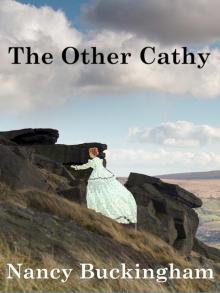 The Other Cathy
The Other Cathy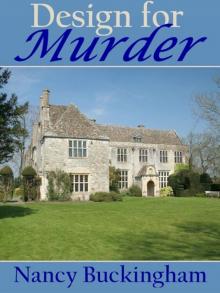 Design for Murder
Design for Murder Valley of the Ravens
Valley of the Ravens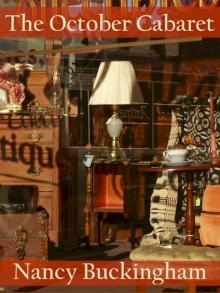 The October Cabaret
The October Cabaret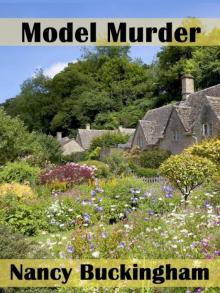 Model Murder
Model Murder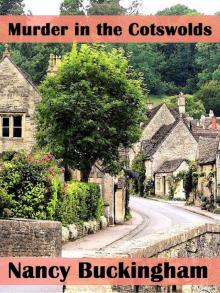 Murder in the Cotswolds
Murder in the Cotswolds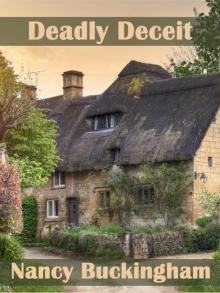 Deadly Deceit
Deadly Deceit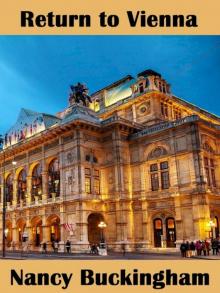 Return to Vienna
Return to Vienna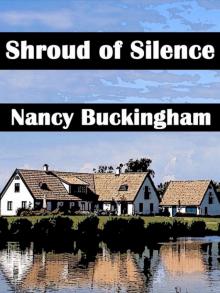 Shroud of Silence
Shroud of Silence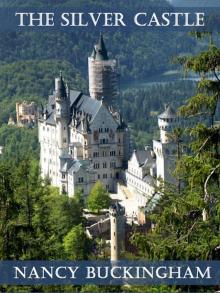 The Silver Castle
The Silver Castle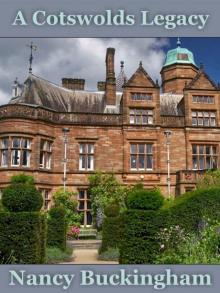 A Cotswolds Legacy
A Cotswolds Legacy Marianna
Marianna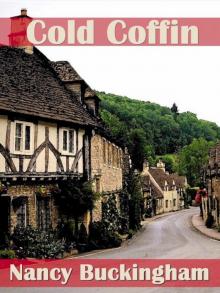 Cold Coffin
Cold Coffin Kiss of Hot Sun
Kiss of Hot Sun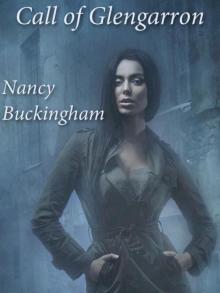 Call of Glengarron
Call of Glengarron Quest for Alexis
Quest for Alexis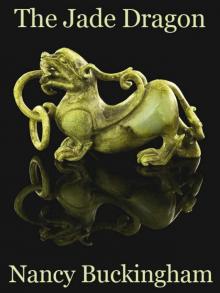 The Jade Dragon
The Jade Dragon